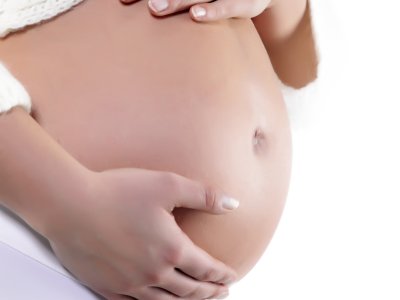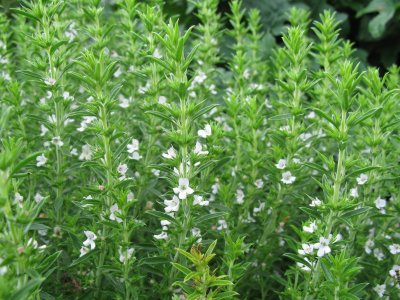Fragrance & human fertility
Therapeutic use issues/
18.02.24

SOME THOUGHTS ON THE ADVERSE EFFECTS OF
FRAGRANCES ON HUMANS.
by Martin Watt.
Extracted from a lecture to the Society of Cosmetic Chemists, UK
I have long had a nagging suspicion that the overuse of fragrance in certain
situations may have unwanted physiological effects. My fears are briefly as
follows:
It is well documented that female rats can’t get pregnant if they can’t detect
the male rats odour.
The fertility cycle of most animals is strongly controlled by scents emanating
from both male and female. Just think about the way dogs, horses and other
animals go sniffing around a female they think is ready for mating.
There is an increasing volume of research indicating that humans do have a
functional vomeronasal organ. This is the receptor in animals noses that
enables them to detect volatile chemicals, at levels which we think we can’t
perceive.
So, I ask you to consider how the prolific use of scents by humans might be
influencing fertility. Could it be that our use of various kinds of fragrances in
our food, on our skin, particularly in our washing machines, in the air, etc.
could, under the right circumstances, prevent a female achieving a desired
pregnancy? I do not know the answer, but am now very suspicious that this
might be an additional factor behind our declining fertility rates.
I doubt the effects of these fragrances would be significant in couples of
normal fertility. However, my advice to sub-fertile couples would be avoid the
use of ALL fragrances for a while. It could be that the natural odours coming
from the male play a part in triggering the necessary hormones to prepare for
fertilisation in the female. It is feasible that the odour from the female plays a
key part in sperm production in the male. One thing is for sure; nature did not
equip our body secretions with fragrances for fun. They are there for a purpose
that I suspect is being strongly suppressed by our modern lifestyle.
Any therapists who treat sub-fertile people might like to consider this. It is fine
to give the individual a massage using essential oils and indeed the stress
relaxation alone may well help achieve a pregnancy. I know that following
aromatherapy treatments, some couples have achieved a pregnancy after
years of trying. This is mainly because of the stress busting properties of
the oils and the treatment. However, in such cases I would advise that when
trying for a baby, the environment should be as free of fragrances as possible.
I would also advise sub fertile couples not to bath or shower for a couple of
days at the times of peak fertility. Better to put up with a bit of body odour for
a while and achieve what they want most, a baby.
Another area to be cautious about with using fragrances is with breast feeding
mothers. Crucial natural odour messages from mother, forms part of the
bonding process and should not be inhibited by other smells. Things like
underarm deodorants, hair sprays, perfumes, fragrant soaps, fabric softener in
particular. Be cautious with all such powerful fragrances. They can be useful,
but think about possible side effects.
For lack of space, I have not given references here, but a lot of research on
humans olfactory perception has been done and references are obtainable.
Extracted from a lecture to the Society of Cosmetic Chemists, UK
I have long had a nagging suspicion that the overuse of fragrance in certain
situations may have unwanted physiological effects. My fears are briefly as
follows:
It is well documented that female rats can’t get pregnant if they can’t detect
the male rats odour.
The fertility cycle of most animals is strongly controlled by scents emanating
from both male and female. Just think about the way dogs, horses and other
animals go sniffing around a female they think is ready for mating.
There is an increasing volume of research indicating that humans do have a
functional vomeronasal organ. This is the receptor in animals noses that
enables them to detect volatile chemicals, at levels which we think we can’t
perceive.
So, I ask you to consider how the prolific use of scents by humans might be
influencing fertility. Could it be that our use of various kinds of fragrances in
our food, on our skin, particularly in our washing machines, in the air, etc.
could, under the right circumstances, prevent a female achieving a desired
pregnancy? I do not know the answer, but am now very suspicious that this
might be an additional factor behind our declining fertility rates.
I doubt the effects of these fragrances would be significant in couples of
normal fertility. However, my advice to sub-fertile couples would be avoid the
use of ALL fragrances for a while. It could be that the natural odours coming
from the male play a part in triggering the necessary hormones to prepare for
fertilisation in the female. It is feasible that the odour from the female plays a
key part in sperm production in the male. One thing is for sure; nature did not
equip our body secretions with fragrances for fun. They are there for a purpose
that I suspect is being strongly suppressed by our modern lifestyle.
Any therapists who treat sub-fertile people might like to consider this. It is fine
to give the individual a massage using essential oils and indeed the stress
relaxation alone may well help achieve a pregnancy. I know that following
aromatherapy treatments, some couples have achieved a pregnancy after
years of trying. This is mainly because of the stress busting properties of
the oils and the treatment. However, in such cases I would advise that when
trying for a baby, the environment should be as free of fragrances as possible.
I would also advise sub fertile couples not to bath or shower for a couple of
days at the times of peak fertility. Better to put up with a bit of body odour for
a while and achieve what they want most, a baby.
Another area to be cautious about with using fragrances is with breast feeding
mothers. Crucial natural odour messages from mother, forms part of the
bonding process and should not be inhibited by other smells. Things like
underarm deodorants, hair sprays, perfumes, fragrant soaps, fabric softener in
particular. Be cautious with all such powerful fragrances. They can be useful,
but think about possible side effects.
For lack of space, I have not given references here, but a lot of research on
humans olfactory perception has been done and references are obtainable.
Source and copyright: aromamedical.org
770
More posts


